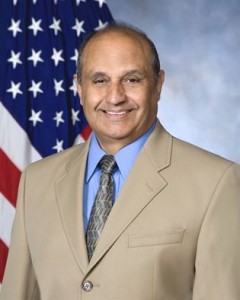Shock Physics- Techniques and Applications
When: November 5-6, 2015
Instructor: Dr. Lalit Chhabildas, Senior Scientist, Emeritus ST, Munitions Directorate Air Force Research Laboratory, Elgin Air Force Base
Location: Johns Hopkins University, Homewood Campus, Baltimore, MD
About the course:
This course presents an overview of the evolution of shock physics experimental techniques over the last six decades to obtain the dynamic mechanical response of materials under uniaxial strain. A brief discussion will include the development of the loading and diagnostic tools and their application to characterize materials and obtain material property data under shock loading. The course is well suited for graduate students, researchers (modelers or experimenters), and engineers who are interested in understanding the shock response of materials for scientific and research applications at universities, industries and/or weapon laboratories. Topics that will be highlighted are listed below:
- What are shocks? Rankine Hugoniot relations – Conservation of mass, momentum and energy
- Loading Techniques: Plate launch techniques using a) explosive lens, b) the smooth bore guns including the two-stage and three-stage light gas guns, and c) the pulsed power Z machine at Sandia.
- Diagnostic Tools: The principle, benefits and limitations of different instrumentation that is available from embedded gauge technologies to non-intrusive interferometric techniques.
- Pulse Shaping: Controlling the shape of loading pressure pulse profiles to include shock loading and release or shock loading and re-shock and isentropic loading experiments.
- Experiments to Determine Shear Strength in the shocked state : Design and interpretation of shock experiments to determine material strength in the shocked state.
- Experiments to Determine Tensile Strength: Design of shock experiments to determine a material’s tensile strength, also known as the spall strength. Dependence of spall on shock strength and pulse duration, i.e., strain rate
Wave Speed Measurements in Shocked State Significance and design of experiments to estimate acoustic wave speed in the shocked state. - Versality of Gun Technology: The use of gun technology to conduct well-controlled fragmentation experiments and intermediate strain rate experiments.
- Other Applications: Time permitting, examples of polymorphic phase transitions, melting phase transitions and melt to vapor transitions will be highlighted
About the instructor:

Dr. Lalit Chhabildas, a member of the scientific and professional cadre of senior executives and prior to his retirement, was the Senior Scientist, Enhanced Energy Effects, Munitions Directorate, Air Force Research Laboratory, Eglin Air Force Base, Fla. He led the high-pressure/rate materials science basic research program to enable E3 munitions design based upon solid understanding of governing physics, including munitions stability and survivability, energy focusing and coupling. Dr. Chhabildas has combined 38 years of experience in the area of high-pressure, high strain rate material properties studies while at AFRL and at Sandia National Laboratories. He is known for his work in developing and implementing many new and novel experimental techniques to promote an understanding of dynamic properties of materials, including metals, explosives and ceramics, under high strain rate and dynamic loading.
Dr. Chhabildas has served on various technical committees and several professional societies; reviewed publications; and authored and co-authored more than 200 articles. He has presented numerous invited presentations including keynote addresses at many international professional meetings and symposiums. Dr. Chhabildas has developed alliances with national research communities within the Department of Defense and Department of Energy as well as internationally with European defense laboratories and universities. He currently mentors young researchers at AFRL in the discipline of shock physics and applications as an emeritus ST staff.
Registration:
Continental breakfast, lunch, the informal social and course materials are included in the cost of registration. Please register using the button below by October 20, 2015.
Schedule:
All of the course events will take place in Malone Hall room G-33 / G35 unless otherwise indicated.Thursday, November 5th
8:30 AM – 9:00 AM: Registration and Continental Breakfast
9:00 AM – 12:00 PM: Short Course
12:00 PM – 12:45 PM: Lunch
12:45 PM- 4:30 PM: Short Course
4:30 PM – 5:30 PM: Informal Social
Friday, November 6th
8:30 AM – 9:00 AM: Continental Breakfast
9:00 AM – 12:00 PM: Short Course
12:00 PM – 12:45 PM: Lunch
12:45 – 5:00 PM: Short Course (Concludes at 5 PM)
Travel and Accommodations:
For those traveling by air, we recommend flying in to BWI Thurgood Marshall Airport in Baltimore.
Shuttle, taxi and rental car options are readily available at BWI for a reasonable price.
For those traveling by train, Baltimore’s Penn Station is a 10 minute drive from campus.
The Inn at the Colonnade is located within walking distance of Homewood Campus.
Cancellation Policy:
HEMI reserves the right to cancel a course up to 2 weeks before the scheduled presentation date. Please contact the HEMI office to confirm that the course is happening before making non-refundable travel arrangements.
Campus Map:
View a map of the Johns Hopkins Homewood Campus by clicking here.



